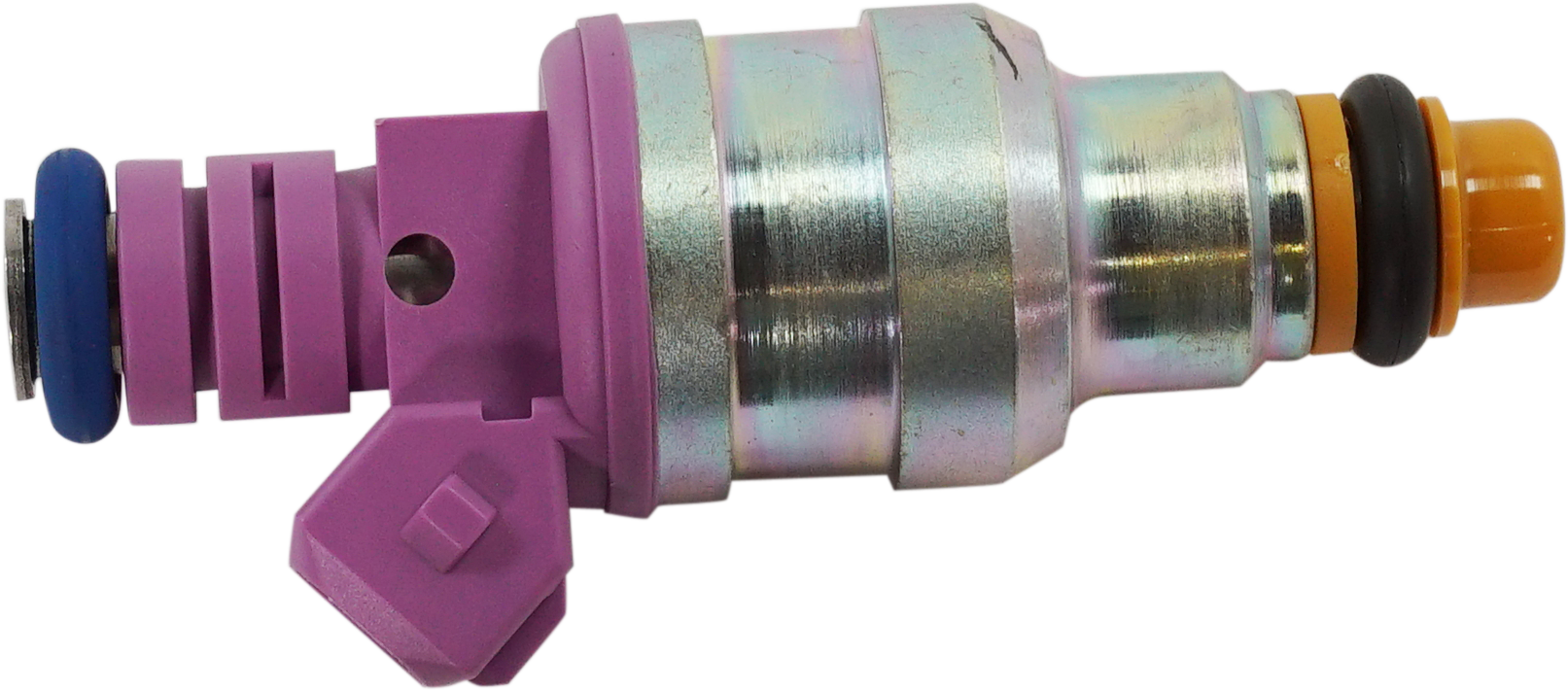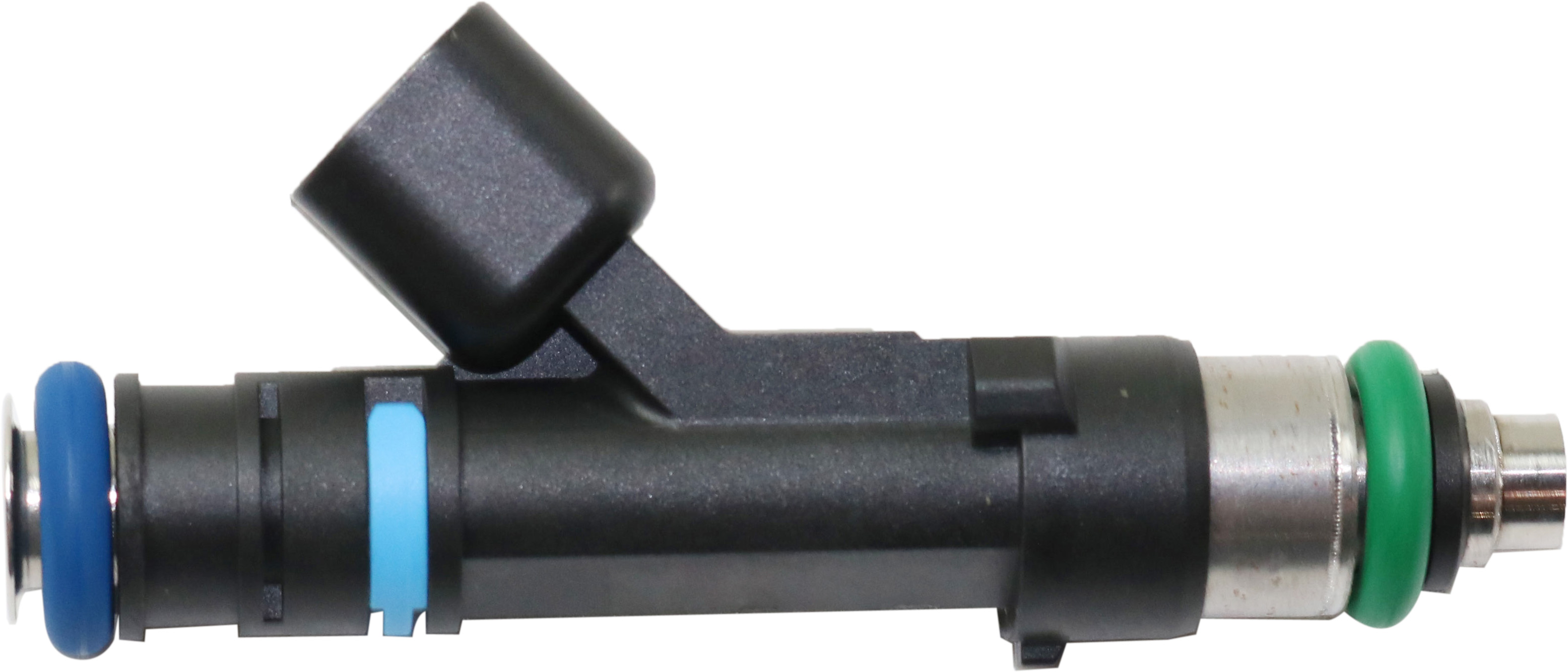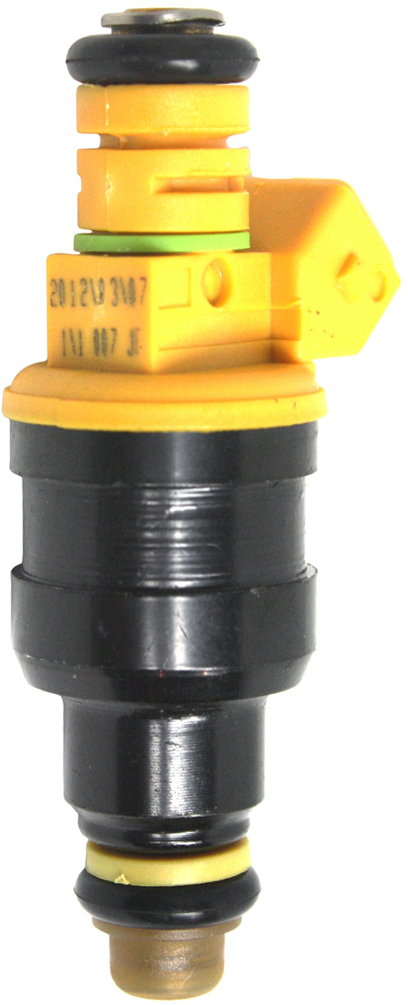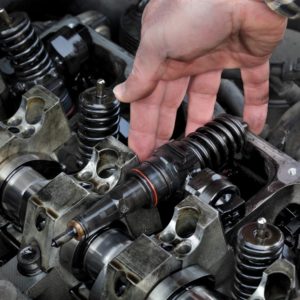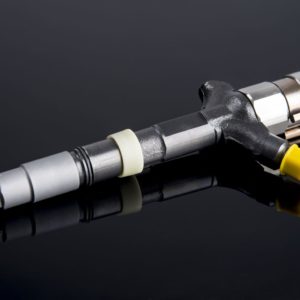If you have an OBD-II scan tool, trouble codes help you detect your vehicle’s potential issues. However, diagnosis and repair can be difficult, especially if you don’t know what a specific code means. If this is your first time dealing with the P0206 code, this guide will help you determine its meaning, as well as its common symptoms and causes.
What Does the P0206 Code Mean?
Diagnostic trouble code (DTC) P0206 stands for “Injector Circuit/Open – Cylinder 6.” This code sets when the powertrain control module (PCM) detects a signal from the injector or its wiring that doesn’t meet the expected values. The “Cylinder 6” in this code’s definition means that the problem is possibly connected to the fuel injector in the engine’s cylinder number six.
The PCM monitors and controls the vehicle’s fuel injectors using transistors called “drivers.” When the injector is activated or deactivated, the PCM expects a specific voltage range from the fuel injector. The PCM also keeps track of the resistance in the fuel injector’s circuit. Most conventional injectors have about 16 ohms of resistance and pull about 0.8 amps.

Most conventional injectors have about 16 ohms of resistance and pull about 0.8 amps.
– Richard McCuistian, ASE Certified Master Automobile Technician
If the voltage or resistance from the fuel injectors or their wiring exceeds or fails to meet the range that the PCM expects, the PCM can set this code. The PCM might also set this code if it can’t control the fuel injectors.
Driving with the P0206 code isn’t advised. If you’re dealing with this code, you need to take your vehicle to a repair shop for diagnosis and repairs as soon as possible.
If you have significant DIY auto repair experience and plan to address the issue yourself, you can get more helpful information in our advanced discussion about fuel injection.

Note: The definition of code P0206 may be different depending on the vehicle manufacturer. Consult the appropriate repair manual or repair database for the exact code definition.
What are the Common Causes of the P0206 Code?
Trouble codes can have many different causes. Some of the possible issues that can trigger the P0206 code include the following:
- Fuel injector failure
- Injector wiring open
- Injector wiring short
- Other circuit issues
- Faulty PCM

What are the Common Symptoms of the P0206 Code?
Here are several possible symptoms of trouble code P0206:
- Illuminated malfunction indicator lamp or check engine light
- Decreased engine performance
- Poor acceleration
- Possible misfires
- Increased fuel consumption
- Engine running rough
How to Diagnose the P0206 Code
Different DTCs can have similar symptoms and causes. That’s why it’s vital to first determine the root cause of the issue that’s triggering the code. If your vehicle has a P0206 code issue, make sure to have it checked as soon as possible before you get back on the road.
If you want to know more about the trouble code P0206 and how the diagnostic process goes, there are many available sources.
Here’s a video that discusses the P0206 in more detail:
How to Fix the P0206 Code
Despite many trouble codes having similar possible causes and symptoms, there is no single cure-all. A solution for the P0206 code in a Ford F-150 might not resolve the P0206 code in a Jeep Liberty. Diagnosis should be thorough so that one can determine the root cause and fix the issues that are triggering the P0206 code.
That said, not everyone has the tools and experience required to diagnose and fix trouble codes. If you’re not familiar with OBD-II troubleshooting and repairs, it’s best to have a certified mechanic do the job for you. This prevents further damage to your vehicle and even more expensive repairs down the line.
How To Get a Quality Replacement Fuel Injector
As much as possible, you should avoid driving your vehicle if your fuel injector is faulty. A malfunctioning fuel injector can cause all sorts of problems, and none of them are easy to deal with. If decreased engine performance and poor acceleration aren’t enough to convince you, then an increase in fuel consumption should do the trick. Thankfully, getting a new fuel injector is fast and easy with CarParts.com.
With strategically located warehouses around the US, CarParts.com guarantees efficient order processing and fast shipping. If you order by 12 p.m. ET, you can expect your new fuel injector to arrive in as fast as two business days. We also offer round-the-clock support, so you can reach out to our customer service should you need any help.
Save yourself the trouble of dealing with a faulty fuel injector. Get a quality replacement fuel injector from CarParts.com today.
Shop this Project



Any information provided on this Website is for informational purposes only and is not intended to replace consultation with a professional mechanic. The accuracy and timeliness of the information may change from the time of publication.


